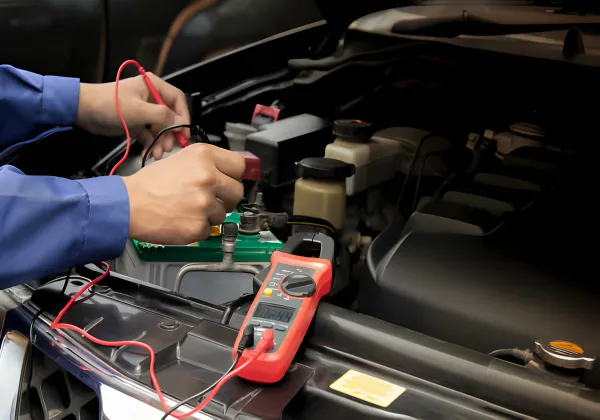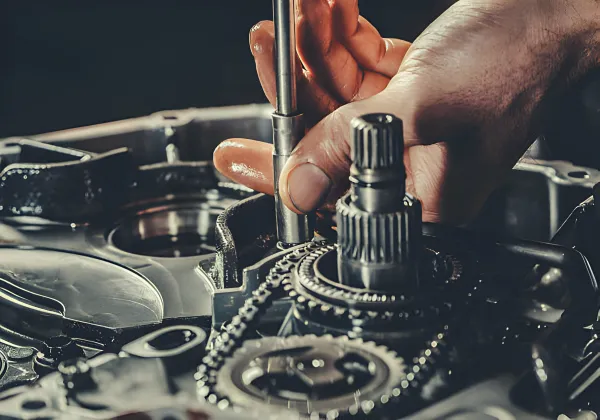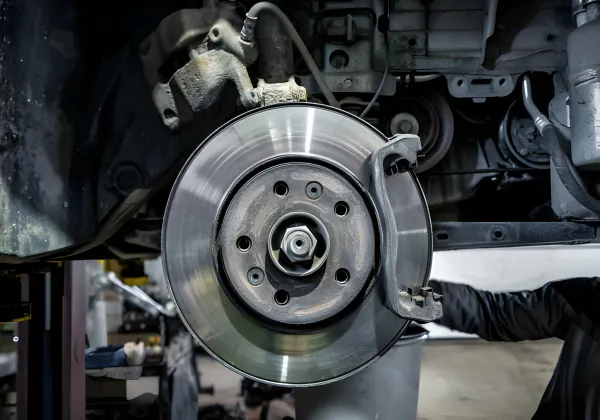Discussions
Deciphering the Importance of Single-Cell Sequencing
The term "single cell" refers to an individual cell, isolated and examined on its own. Analysis conducted specifically on individual cells is collectively referred to as single-cell sequencing analysis, while sequencing performed on these isolated cells is termed single-cell sequencing. Sequencing multiple cells or a group of cells falls outside the realm of single-cell sequencing. For instance, common genetic sequencing practices, often performed for public interest, entail extracting specific DNA fragments after minimal blood processing. However, it remains uncertain whether the extracted DNA originates from a particular white blood cell, another white blood cell, or free DNA circulating in the bloodstream. Similarly, in conventional tumor studies, sequencing is typically conducted on numerous tumor cells isolated from tumor tissue. <a href="https://singlecell.creative-biolabs.com/single-cell-omics-solutions-for-oncology.htm">Single-cell sequencing for oncology</a> represents a specialized form of sequencing; currently, the majority of sequencing efforts do not operate at the single-cell level.
To grasp the technical aspects of single-cell sequencing and analyze its advantages, it's crucial to understand the precise meanings of terms such as "single-cell sequencing" and "high-throughput technology." We need to discern what these terms entail when prefixed with "single cell" or "high-throughput."
The fundamental significance of single-cell sequencing lies in cellular heterogeneity. This implies that individual cells exhibit variability, even among cells from the same location, potentially resulting in differences in gene expression and other attributes. Studying cell populations only provides averaged outcomes, masking cellular heterogeneity. Two specific examples illustrate this:
Firstly, cell classification. Historically, cell classification relied on characteristics like spatial position and morphology, which is a relatively crude method. Conducting <a href="https://singlecell.creative-biolabs.com/single-cell-sequencing-analysis.htm">single-cell RNA or DNA sequencing</a> enables a more nuanced and rigorous cell classification, particularly beneficial for complex tissues, facilitating a deeper understanding of cellular functions.
Secondly, studies related to tumors. A widely accepted hypothesis regarding tumor metastasis posits that certain cells from a tumor may detach, enter the bloodstream, and become circulating tumor cells (<a href="https://singlecell.creative-biolabs.com/single-cell-omics-solutions-for-circulating-tumor-cells.htm">CTCs</a>). Some CTCs may travel to an organ via the bloodstream, invade blood vessels, infiltrate the organ, adhere, proliferate, and form new tumors. Determining which cells from the original tumor become CTCs, which CTCs can survive in the bloodstream, and complete tumor metastasis requires single-cell level sequencing and other related research endeavors.
In conclusion, the advent of single-cell sequencing has opened new vistas in our understanding of cellular biology, particularly in unraveling the complexities of cellular heterogeneity. By delving into the intricacies of individual cells, we can uncover insights that were previously obscured by population-level analyses. This approach holds immense promise in various fields, from advancing our knowledge of basic cellular functions to revolutionizing our understanding of diseases like cancer. As we continue to refine and expand single-cell sequencing technologies, we can anticipate even greater breakthroughs on the horizon, unlocking the full potential of this powerful tool in biological research and clinical practice.
Posted by sherwinbrown about 3 hours ago
Bispecific Antibodies: A Rising Force in Revolutionary Cancer Treatment
In the realm of cancer therapy, immunotherapy has emerged as a beacon of hope, surpassing traditional methods. Monoclonal antibodies, renowned for their precision in targeting specific molecules, have played a crucial role in cancer treatment. However, their effectiveness is often limited by the complexities of tumor development when focusing on a single point. Enter bispecific antibodies (bsAbs), a transformative force in tumor immunotherapy that can target multiple sites simultaneously.
The evolution of antibodies has shifted from basic forms to more intricate derivatives, with a spotlight on bsAbs of diverse shapes and sizes. <a href="https://www.creative-biolabs.com/bsab/introduction-to-bispecific-antibody.htm">BsAb</a> technology has captured the attention of researchers, becoming a cornerstone in cancer immunotherapy. Presently, numerous preclinical and clinical trials are underway, marking the era of bsAbs in tumor immunotherapy. As of December 2021, the United States Food and Drug Administration (FDA) has granted approval for three types of bsAbs for clinical cancer treatment.
BsAbs, with their ability to simultaneously target two epitopes on tumor cells or within the tumor microenvironment, have become a pivotal element in the next generation of therapeutic antibodies. The majority of bsAbs in development function as T-cell engagers, fostering connections between immune cells, particularly cytotoxic T cells, and tumor cells, resulting in selective attacks on targeted tumor cells.
<a href="https://www.creative-biolabs.com/bsab/overview-of-bispecific-t-cell-engager.htm">Bispecific T-cell engagers</a> have shown promising results in clinical trials, especially in hematologic malignancies. Blinatumomab, the sole bispecific T-cell engager approved by the FDA and the European Medicines Agency, has demonstrated efficacy in treating certain forms of leukemia. Additionally, various other bispecific T-cell engagers are undergoing clinical trials, targeting a range of tumor types.
Categorized by their functional mechanisms, bsAbs include cell-cell engagers, those binding two epitopes on the same antigen, dual-functional modulators, and bsAbs in cell therapy. Innovative forms, such as those incorporating an antigen-binding Fc fragment (<a href="https://www.creative-biolabs.com/bsab/overview-of-fcab.htm">Fcab</a>), offer advantages like superior tissue penetration, particularly beneficial in treating solid tumors. Fcabs also serve as a foundation for creating antibody-drug conjugates (ADCs), ensuring precise drug delivery.
While most bsAbs in clinical trials target hematologic malignancies, there is a growing need to explore their effectiveness in solid tumors, considering potential adverse effects on normal tissues. Challenges such as immune-tolerant cancer stroma, angiogenic disorders, and limited penetration of bsAb drugs contribute to the complexity of this exploration. Ongoing research in this area reflects the enthusiastic interest in expanding the applications of bsAbs in cancer treatment.
In conclusion, the research on bispecific antibodies highlights their promising prospects in innovative drug design and subsequent clinical applications for cancer treatment.
Posted by sherwinbrown about 3 hours ago
ADCC/CDC Enhancement in Therapeutic Antibody Development
Therapeutic antibodies, engineered through biotechnology, represent a specialized class of antibodies used in disease treatment. These antibodies are designed to target specific disease markers, such as malignant tumors, autoimmune disorders, and infectious diseases. Compared to traditional antibody therapies, therapeutic antibodies offer higher specificity and fewer side effects.
In the realm of immunotherapy, antibody-dependent cell-mediated cytotoxicity (ADCC) stands out as a highly effective anti-tumor mechanism. ADCC enhancement refers to the bolstering of immune cells' ability to attack malignant cells, thereby enhancing the efficacy of immunotherapy. <a href="https://adcc.creative-biolabs.com/adcc-enhancement-technology.htm">ADCC enhancement technology</a> finds significant applications in the field of therapeutic antibodies, encompassing techniques like fucosylation engineering, Fc protein-engineering, cross-isotype engineering, and glyco- and Fc protein dual engineering.
Furthermore, antibody-dependent cell phagocytosis (ADCP) plays a pivotal role in the action of therapeutic antibodies. The <a href="https://adcc.creative-biolabs.com/adcp-assay-services.htm">ADCP assay</a> serves as an experimental method for studying antibody-dependent cell phagocytosis. This research investigates whether antibodies assist immune cells, such as macrophages, in recognizing, engulfing, and digesting labeled target cells or pathogens. Through the ADCP assay, researchers can assess whether therapeutic antibodies activate immune cells to attack and eliminate tumor cells, instilling renewed optimism in cancer treatment.
CDC enhancement, a classical approach to fortifying the immune system, amplifies the cytotoxicity of antibodies. Immunotherapy often hinges on antibody action, and CDC enhancement accentuates the activation of the complement system by antibodies, inducing cell toxicity and ultimately eradicating target cells.
In CDC enhancement, antibodies (typically therapeutic monoclonal antibodies) bind to antigens on the surface of target cells, triggering the activation of the C1q molecule in the complement system. C1q further instigates the complement cascade reaction in the immune system, culminating in the formation of the membrane attack complex (MAC). This process ruptures target cell membranes and leads to cell lysis, achieving cytotoxic effects on the target cells. Researchers assess the binding capacity of therapeutic antibodies with C1q through the <a href="https://adcc.creative-biolabs.com/c1q-binding-assay-services.htm">C1q binding assay</a>, determining the antibody's effectiveness in the immune response.
Researchers have surmounted numerous challenges in disease treatment through advanced techniques such as the C1q binding Assay and ADCP assay. In cancer treatment, scientists have successfully developed a series of antibodies targeting specific antigens. These drugs activate immune cells, propelling them to engulf and annihilate cancer cells. The successful application of this immunotherapy brings renewed hope to tumor treatment.
In the domain of autoimmune disease treatment, researchers are leveraging antibodies to target diseases resulting from immune system overactivation. Through meticulous C1q binding assay studies, scientists can pinpoint the most suitable antibodies for treatment, precisely modulating the immune system's activity to achieve therapeutic goals.
Moreover, in the realm of treating viral and bacterial infections, the utilization of the ADCP assay is on the rise. Researchers have formulated a series of antibodies targeting pathogens, effectively eliminating infection sources by stimulating immune cells to engulf these pathogens. Consequently, this approach has significantly heightened the success rate of infectious disease treatments.
With the continuous evolution of single-cell technologies and CRISPR gene editing techniques, researchers can delve deeper into cell death mechanisms, antibody structures, and immune cell functions. This progress will further accelerate research on ADCC enhancement, offering more precise and efficient means for disease treatment.
Posted by sherwinbrown about 3 hours ago
Cell Therapy: Surface Modification Technology Based on Cell Membrane
The cell membrane acts not only as a physical barrier but also as a functional organelle that regulates communication between cells and their environment. Functionalizing the cell membrane using synthetic molecules or nanostructures has the potential to enhance cellular functions beyond those achieved through natural evolution. <a href="https://cellface-conjugate.creative-biolabs.com/enhanced-cell-therapy.htm">Cell therapy</a> represents a groundbreaking approach in treating major challenging diseases, including tissue injuries, degenerative diseases, and congenital metabolic disorders. The primary focus of biomedical research has always been on regulating cellular functions to maximize the efficiency of cell therapy.
Given that the cell surface plays a critical role in cellular physiology and pathology by controlling recognition and communication between cells and their environment, functionalizing the cell surface emerges as an effective method for regulating cellular functions. We have developed a range of cell surface modification techniques based on molecular self-assembly approaches, wherein exogenous biomolecules and biomaterials are constructed on the cell surface through molecular engineering to regulate cell function and enhance the efficacy of cell therapy. This non-genetic engineering-based modification of the cell surface can functionalize cells within hours, significantly reducing manufacturing costs and processes without genetically modifying the cells, thereby making transient manipulation of cell functions feasible while avoiding potential safety risks.
The highly specific biotin-avidin interaction exhibits remarkable resistance to harsh denaturing conditions, including heat, pH fluctuations, and organic solvents. Consequently, biotinylation holds immense promise in cell surface engineering. <a href="https://cellface-conjugate.creative-biolabs.com/cell-surface-based-biotinylation-modification-service.htm">Cell surface-based biotinylation modification</a>, leveraging the strong affinity between biotin molecules and avidin, enables the specific introduction of biotin on the cell surface, thereby functionalizing the cell through biotin-avidin binding.
This technology typically involves the following steps:
Introduction of biotin linker: Initially, molecules containing biotin linker groups must be introduced onto the cell surface. This can be accomplished through various methods, such as employing compounds containing biotin or utilizing biotin ligase to catalyze the covalent binding of biotin to cell surface molecules.
Covalent binding of biotin linker with cell surface molecules: The biotin linker forms covalent bonds with molecules on the cell surface, thereby introducing biotin onto the cell membrane. This binding is typically highly specific, enabling the selective modification of specific cell surface structures.
Interaction between biotin and avidin: Once the cell surface is labeled with biotin, the high -affinity interaction between biotin and avidin is utilized to functionalize the cell. Avidin is usually associated with fluorescent labels, polymers, or other molecular tags, which, upon specific binding with biotin, are introduced onto the cell surface, achieving functional modification of the cell.
Functional application: Following the labeling of the cell surface with biotin and its binding to avidin, various functional modifications of the cell can be achieved. For instance, fluorescent labels can be utilized for cell imaging, drug carriers can be attached to the cell surface for drug delivery, or other functional molecules can be employed to regulate cell signaling, among other applications.
Utilizing cell membrane coating technology to enhance the efficacy of drugs involves introducing additional cell membrane functions to increase their specificity. Although cell membrane-coated nanoparticles (CM-NPs) can achieve prolonged circulation, adding targeting ligands can enhance their localization to specific targets, such as tumors. This <a href="https://cellface-conjugate.creative-biolabs.com/cell-membrane-based-ligand-modification-technology.htm">cell membrane-based ligand modification technology</a> offers a simpler and more effective approach by combining natural cell membranes with different ligands for biological tasks.
This strategy involves stabilizing functional ligand molecules on the extracellular domains of cell membrane proteins using cell-impermeable linkers. The crux of this method lies in coupling the ligand with cell membrane proteins, thereby achieving functional modification of the cell membrane. This cell membrane-based surface engineering technology offers drug delivery systems with enhanced specificity and targeting, particularly in fields like tumor therapy, with extensive application prospects.
Posted by sherwinbrown about 3 hours ago
A Quick Guide to QuickBooks POS Failed To Open Company File.
When QuickBooks POS fails to open a company file, it can cause significant disruption to retail operations, affecting sales tracking and inventory management. This issue may occur due to file corruption, network connectivity problems, or software conflicts. It is essential to troubleshoot this problem promptly to restore access to the company file and resume business operations as soon as possible. Users can identify the root cause of the issue and resolve QuickBooks POS failed to open company file problems by following recommended troubleshooting steps, ensuring uninterrupted retail management.
<https://www.errorsfixs.com/blog/quickbooks-pos-failed/>
Posted by lukas mark about 8 hours ago
Where Does British Airways Fly Direct From Manchester?
Where Does British Airways Fly Direct From Manchester, British Airways offers direct flights from Manchester Airport to a variety of domestic and international destinations, providing passengers with convenient travel options. Some of the key direct routes operated by British Airways from Manchester include:
1. London Heathrow: British Airways operates frequent direct flights between Manchester and London Heathrow, offering passengers seamless connections to the UK capital and beyond. This route serves as a vital link for travelers seeking to access British Airways' extensive global network from Heathrow.
2. New York (JFK): British Airways provides direct flights from Manchester to New York's John F. Kennedy International Airport, offering passengers a convenient option for transatlantic travel between the UK and the United States.
3. Dubai: Passengers flying from Manchester can enjoy direct flights to Dubai with British Airways, providing a gateway to the vibrant city in the United Arab Emirates and connections to other destinations in the Middle East and beyond.
4. Islamabad: British Airways operates direct flights from Manchester to Islamabad, offering passengers a convenient option for travel to the capital city of Pakistan and connections to other cities in the region.
5. Barbados: British Airways offers direct flights from Manchester to Bridgetown, Barbados, providing passengers with a direct link to the beautiful Caribbean island for leisure travel and beach getaways.
These direct routes from Manchester Airport with British Airways cater to a range of travel preferences, including business travel, leisure trips, and connecting flights to other destinations. Passengers flying with British Airways from Manchester can benefit from the airline's quality service, modern aircraft, and convenient connections to a variety of domestic and international destinations.
<https://www.airlineofficemap.com/british-airways/flights-from-manchester/>
Posted by airlineofficemap about 12 hours ago
A Quick Guide to QuickBooks Payroll Not Updating.
QuickBooks Payroll Not Updating can cause problems for businesses and disrupt payroll processing. This issue may arise due to various factors such as outdated software, problems with the internet connectivity, or issues with the payroll subscription. When QuickBooks Payroll fails to update, it can result in incorrect employee wages, tax calculations, and compliance issues. It is essential to troubleshoot this issue promptly to ensure timely payroll processing and regulatory compliance. Users can resolve QuickBooks Payroll Not Updating issues and maintain smooth payroll operations by addressing the root cause of the problem and following recommended troubleshooting steps.
<https://www.errorsfixs.com/blog/quickbooks-payroll-not-updating/>
Posted by lukas mark about 13 hours ago
Coil Craft
With over 100 tankless coil options in stock, Coil Craft is a go-to source for specialty coils. Their extensive inventory means they likely have the exact coil you need for your boiler or other equipment. Beyond just products, Coil Craft prioritizes customer service. Their 24/7 emergency response team of engineers, technicians and managers is ready to help anytime. Reach out to their knowledgeable customer service representatives who will happily answer your questions. It's this combination of in-stock selection and dedicated support that makes Coil Craft a leading coil provider.
<https://www.coil-craftinc.com/gallery.html>
Posted by Bade about 14 hours ago
Understanding and Fixing Audi S3 Problems
<br>

When it comes to performance and luxury, the Audi S3 stands out as a compact sedan that delivers a thrilling driving experience. However, like any other vehicle, the Audi S3 is not immune to issues that can arise over time. Understanding these problems and knowing how to address them is crucial for maintaining the optimal performance and longevity of your Audi S3.
## 1\. Audi S3 Turbocharger Failure

One common issue that Audi S3 owners may encounter is turbocharger failure. The turbocharger plays a vital role in boosting the engine's power output, but it can be prone to wear and tear, especially with aggressive driving habits. Symptoms of turbocharger failure include a loss of power, excessive smoke from the exhaust, and unusual engine noises. To address this issue, it's essential to have the turbocharger inspected and, if necessary, replaced by a qualified mechanic.
## 2\. Audi S3 Carbon Build-Up

Carbon build-up is another prevalent issue in Audi S3 vehicles, particularly in models equipped with direct fuel injection. Over time, carbon deposits can accumulate on the intake valves and cylinder head, leading to reduced engine performance and efficiency. Regular maintenance, such as carbon cleaning services, can help prevent this problem. Additionally, using high-quality fuel and additives designed to clean the fuel system can also mitigate carbon build-up.
## 3\. Audi S3 Electrical Gremlins

Like many modern vehicles, the Audi S3 features a complex electrical system that controls various functions, including the infotainment system, lighting, and advanced driver assistance systems. However, electrical gremlins, such as faulty sensors or wiring issues, can arise, causing malfunctions or warning lights to illuminate on the dashboard. Diagnosing and repairing electrical issues in the Audi S3 often requires specialized diagnostic equipment and expertise, so it's essential to seek assistance from a certified technician.
## 4\. Audi S3 Suspension Problems

Given its sporty nature, the Audi S3 features a firm suspension setup designed to provide sharp handling and a responsive driving experience. However, over time, components such as bushings, struts, and control arms can wear out, leading to suspension problems like excessive noise, uneven tire wear, or a harsh ride quality. Regular inspections and timely replacement of worn suspension parts can help maintain the S3's dynamic driving characteristics.
## 5\. Audi S3 Transmission Issues

The transmission is a critical component in any vehicle, and the Audi S3 is no exception. Some owners may experience transmission issues, such as rough shifting, hesitation, or fluid leaks. These problems can be caused by various factors, including worn clutch packs, solenoid failures, or insufficient transmission fluid levels. Addressing transmission issues promptly can prevent further damage and ensure smooth and reliable performance.
## 6\. Audi S3 Brake System Faults

Maintaining a robust and reliable braking system is paramount for safe driving, and Audi S3 owners should be vigilant for signs of brake system faults. Symptoms of brake problems may include squealing or grinding noises, a spongy brake pedal, or uneven brake pad wear. Regular brake inspections and servicing, including pad and rotor replacement as needed, are essential for ensuring optimal braking performance and safety.
## 7\. Audi S3 Cooling System Concerns

Efficient engine cooling is vital for preventing overheating and ensuring optimal performance in the Audi S3. However, cooling system concerns, such as coolant leaks, radiator failures, or thermostat issues, can arise and compromise engine reliability. Monitoring coolant levels regularly and addressing any leaks or malfunctions promptly can help prevent catastrophic engine damage and costly repairs.
## 8\. Audi S3 Exhaust System Troubles

The exhaust system plays a crucial role in reducing emissions and enhancing engine performance in the Audi S3. However, exhaust system troubles, such as leaks, rust, or damaged catalytic converters, can occur over time, leading to increased exhaust noise, decreased power output, or failed emissions tests. Regular inspections and maintenance of the exhaust system can help identify and address potential issues before they escalate.
## 9\. Audi S3 Oil Consumption

Some Audi S3 owners may notice excessive oil consumption, which can be indicative of underlying engine problems such as worn piston rings or valve seals. Monitoring oil levels regularly and addressing any abnormalities promptly can help prevent engine damage and ensure long-term reliability. Additionally, using high-quality synthetic oil and adhering to recommended oil change intervals can mitigate oil consumption issues.
## 10\. Audi S3 Body and Interior Concerns

While the Audi S3 boasts a sleek and stylish exterior design and a premium interior finish, owners may encounter body and interior concerns over time. These may include paint defects, interior trim damage, or electronic glitches in features such as the power windows or sunroof. Regular detailing and maintenance can help preserve the S3's aesthetic appeal and ensure a comfortable driving experience for years to come.
## How Service My Car Assists You?
Wondering where to get a reliable [car oil change](https://servicemycar.com/uae/car-oil-change)? Look no further than Service My Car! Our expert technicians in Dubai ensure your car receives top-notch care with our oil change services. From conventional to synthetic oils, we've got you covered. Trust us to keep your engine purring like a kitten and your car cruising down Dubai's roads with ease. Experience the Service My Car difference today!
## Conclusion
In conclusion, understanding and addressing common problems in the Audi S3 is essential for maintaining its performance, reliability, and resale value. By staying proactive with routine maintenance, monitoring for warning signs, and seeking professional assistance when needed, Audi S3 owners can enjoy a seamless driving experience and maximize their ownership satisfaction for years to come.
Posted by Taymullah Safar about 15 hours ago
The Tyre Dealer
Tyres have to last and withstand a lot of wear. It can be difficult to find a tyre that has good, all round performance. For this The Tyre Dealer, we have designed these Tyres Colchester with high-quality materials to ensure excellent performance over the lifetime of the tyre.
To Know More - <https://www.thetyredealer.co.uk/>
<br>
Posted by The Tyre Dealer about 16 hours ago
